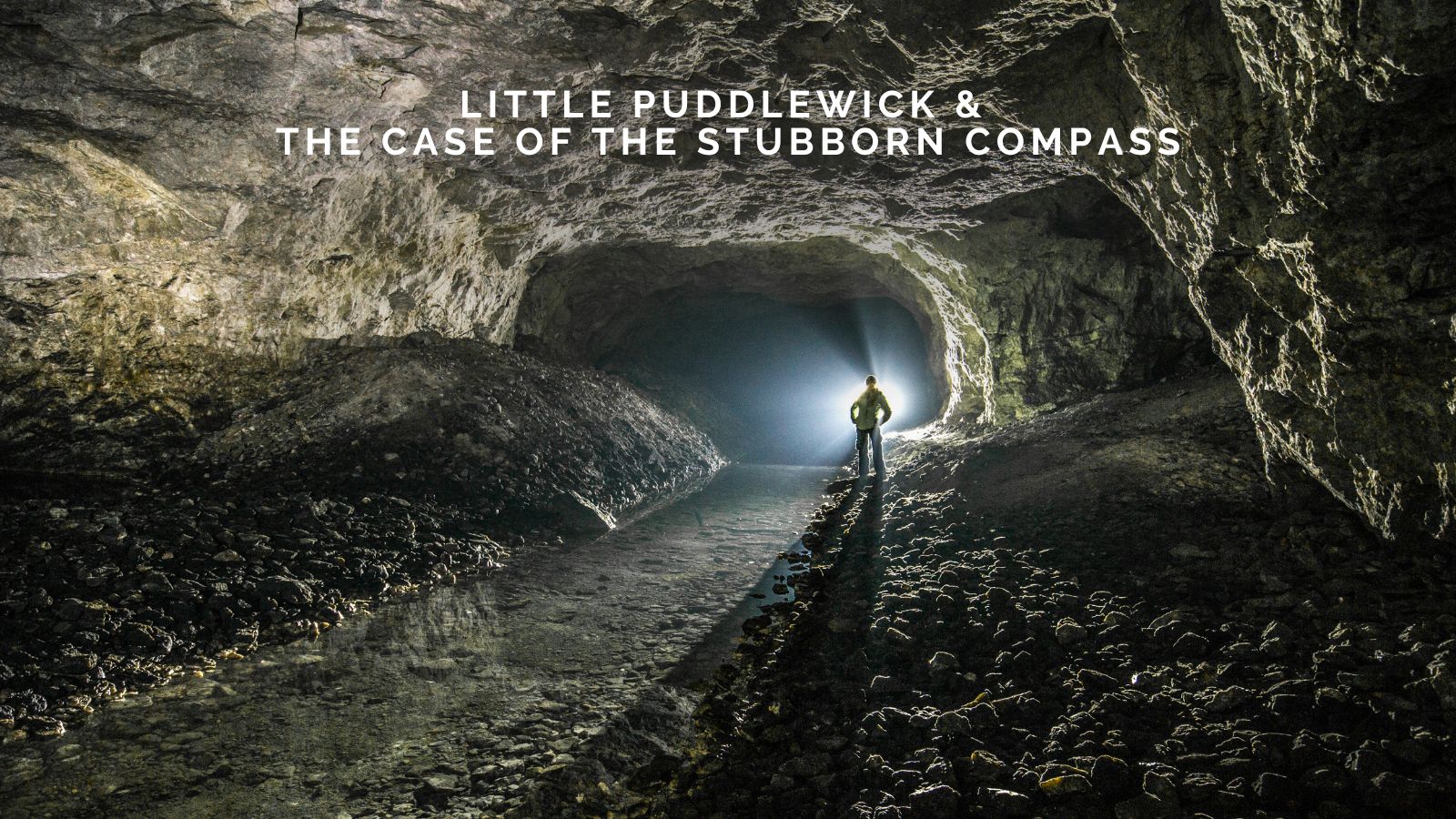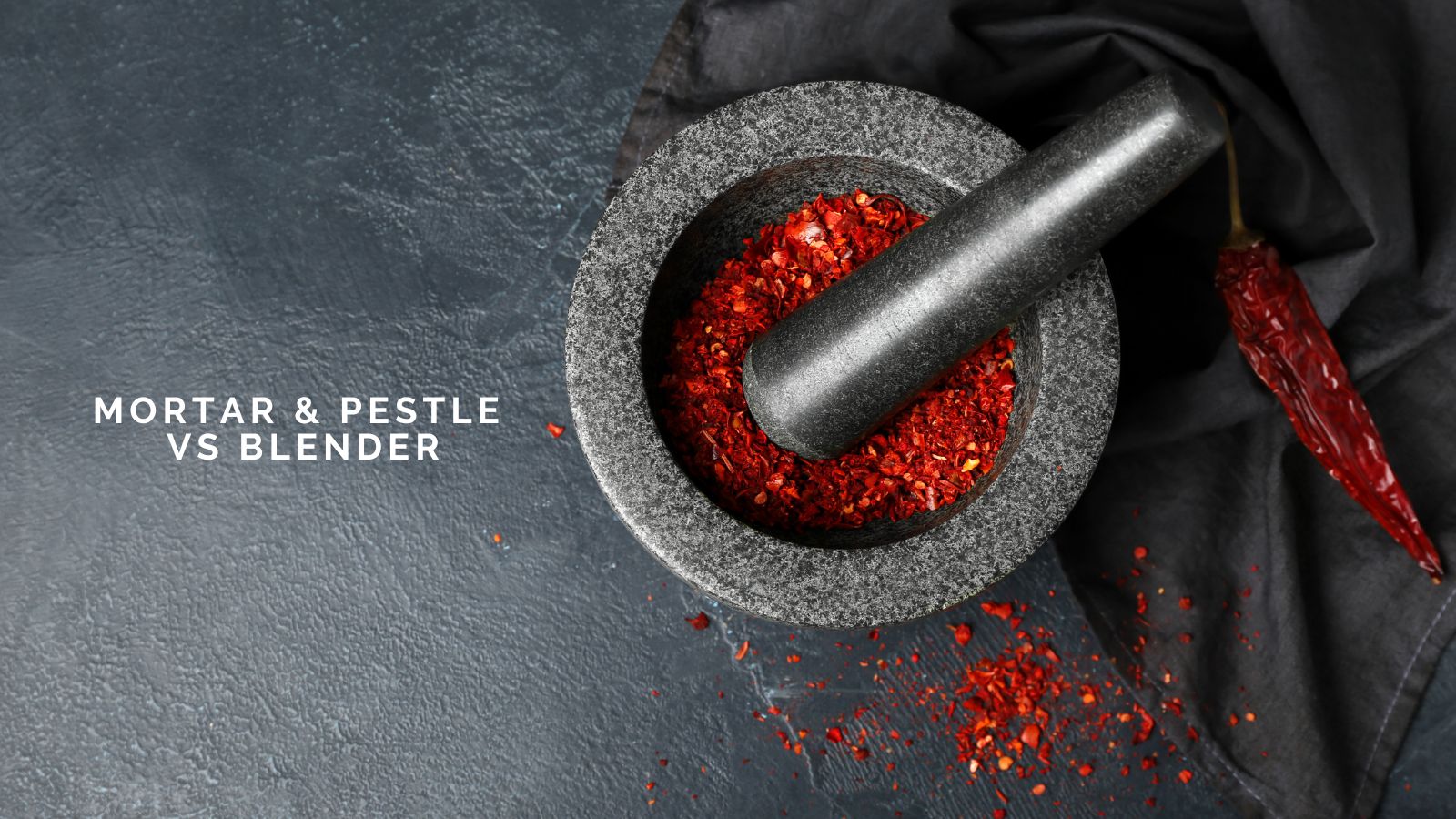
For the first part of Little Puddlewick Mysteries, click here.
Dawn came grey and thin over Little Puddlewick. The rain had rinsed the air clean, leaving the village roofs dark and shining, the lanes puddled and quiet. Inside the Golden Lion, they sat in the hush that follows a night of shock: four old friends and the fifth, bruised and pale, a circle around a table that had seen arguments, darts, courtships, and several generations of spilled lager.
Arthur laid the parchments flat, smoothing the brittle edges with care. Beatrice fetched a clean tea towel from behind the bar and set it underneath like a cloth in a museum case. Colin checked the bolt on the cellar door twice, then once more for good measure. Eleanor watched Peter stir his tea with a slow hand, as if the spoon weighed more than it should.
“Head?” she asked.
“Rings a bit,” he said. “Feels like I’ve been used as a drum.”
“You were,” Colin said, voice even. He had the sort of calm that comes from being ready for the worst.
Peter nodded, wincing. “He’s not local.”
“No,” Arthur said. “His vowels wandered.”
“His eyes did, too,” Beatrice added, glancing at the map on the wall. “Kept returning to that, as if it were a clock he needed to check.”
They bent to the parchments. The script on them looped neat as hedgerows, a hand used to parish ledgers and careful notes. Elara Finch had not only written a letter. There were fragments—entries from a journal, a list of names and dates, a small sketch of the old manor when the Golden Lion had been a private house. On the back of one page, the ink faded to the colour of tea, a short verse stood alone.
Arthur read it aloud.
“By lion’s pride and miller’s rest,
Find shade the yew at noon has cast.
Where two old stones and one new post
Make cross of ground, the spring flows past.”
He looked up, eyes bright. “It rhymes.”
“Most riddles do,” Beatrice said.
Eleanor took the compass from the table and held it in her palm. The lion rampant on the lid glinted dull in the morning light. The needle held steady, not pointing north but somewhere else entirely, as if the world had a second axis that only the compass could see.
“The lion’s pride,” she said, turning the lid with her thumb. “That’s this. And the miller’s rest must be the mill when the wheel stops. Noon for the yew’s shadow. Two old stones and one new post… what’s that?”
“Boundary markers,” Colin said. “We’ve got stones everywhere in this village where lines were drawn—fields, parishes. New post could be a more recent one. Council put a few in when the footpaths got waymarked, remember?”
Peter’s eyebrows knit. “The spring flows past. So it’s not under something. It’s beside something.”
Eleanor’s gaze moved to the faded map on the wall. Drawn in a time before aerial surveys, it had bends where roads were straight now and little sketches of trees where none had stood in years. Near the Golden Lion, a faint, hand-drawn line snaked between the pub, the church, and the mill. She’d noticed it the night before and thought it one more of the map’s quirks. Now it seemed to suggest a path someone meant to mark but also meant to hide.
“The imposter looked at that map like it held a timetable,” she said. “He’ll be moving already.”
Arthur folded the verse open and shut, thinking. “If he knows the spring exists and that the compass points, he still needs the riddle for the exact spot. He may have it.”
“Or he guessed,” Beatrice said, calm rising to practicality. “Noon’s in a few hours. Yew trees are rare round here. We can get there first.”
“Go where?” Peter asked. “There are yews in the churchyard for a start.”
“Yes,” Arthur said. “But the verse says miller’s rest. I think the mill is part of the triangulation. And two old stones and one new post—cross of ground—that sounds like a field junction. Churchyard yews cast shadow on graves, not fields.”
Eleanor had already begun to move. She slipped the compass into her pocket, set the parchments into a clean folder Beatrice found in the office, and pushed back her chair. “We can argue the wording as we walk.”
Beatrice fetched coats. Colin checked the street through the pub window. “Clear.” He lifted a heavy umbrella from the stand by the door and nodded to Peter. “You’re not staying.”
Peter’s mouth opened to protest; then he closed it and stood. “No, I suppose I’m not. He took my name for a few hours. I’ll take the rest back.”
They stepped into the morning. The air was cold enough to make breath show. The lane up towards the mill ran between gardens and low stone walls that had been there since sheep still outnumbered cars. The mill itself sat where the stream narrowed, a solid building with a tiled roof and a wheel that had not turned for years except once a summer when the village fete persuaded it creakily to life for photographs.
At the mill pond the ducks pretended they had important business. Arthur squinted at the horizon. “The sun will be there at noon. The yew shadow will stretch—”
“One problem,” Beatrice said, pointing. “Where is the yew?”
They scanned the bank. Willow, ash, elder. No yew. Eleanor pulled the compass free. The needle set itself, steady and stubborn, pointing south-west across the field beyond the mill. A public footpath cut the grass at a diagonal. At its far corner stood two squat stones of the old sort—rounded, upright, their faces rough with lichen. Beside them, a new waymark post lifted its square head with a small green arrow nailed on.
Arthur let out a small sound that might once have been a schoolboy’s whoop. “Two old stones and one new post. Cross of ground.” He tapped the verse. “Miller’s rest—when the wheel is still. Which it is. Lion’s pride—compass in hand. And the yew’s shadow at noon…”
“What yew?” Colin asked, plain as a spade.
Peter pointed. “Churchyard. The old yew spreads like a cloud. At noon, its shadow will fall long enough to reach that field corner if the light is right and the ground is flat enough.”
Eleanor looked between church and field. The line the compass gave and the map’s faint path matched something in her bones, a sense of where things belonged. “We haven’t got until noon. If he’s guessed the same, he’ll do something to mark the spot before we get there and wait for the shadow to confirm it.”
Colin handed Beatrice the umbrella and set off at a brisk walk down the footpath. The rest followed. The field was wet and their shoes collected damp and grass seeds, but it was nothing compared to the weight in their thoughts. When they reached the corner, the ground showed more than water’s marks. Boot prints. Larger than Peter’s, narrow at the heel. A scuff where someone had knelt. Beatrice crouched to touch the mud, then wiped her fingers on the grass.
“He was here,” she said. “An hour ago, maybe less.”
Arthur walked the corner in a square. His gaze traced invisible lines. “If you were going to hide the entrance to a spring, you’d put it somewhere ordinary to look at and awkward to work on without being seen.”
“A trough,” Peter said. “A large stone one. Farmers loathe moving them. They look like they’ve been forever.”
They all turned. A few yards from the post, half sunk into the ground and obscured by nettles, a long stone trough sat as if it had been abandoned after the last cow drank and never fetched again. Colin went first, testing the ground with his boot before pushing the nettles aside with the umbrella. The trough was full of rainwater and fallen leaves turned to a brown stew. At one end a lip showed where a spout might have been.
Eleanor looked to the compass. The needle now pointed straight at the trough, unwavering. She pressed the lid shut and put the device back in her pocket, a sudden urge to hide it from the sky.
“There,” Arthur said, voice low. He had crouched and found, half-hidden under silt and algae on the trough’s base, a carved mark: a lion rampant, faint as breath on a mirror.
They all saw it then. In that same moment, Colin’s head came up. He had the look of a dog that hears a sound others do not yet.
“Car,” he said.
On the lane beyond the stile, a dark saloon rolled to a stop—clean, anonymous, out of place on a track that usually saw tractors and the occasional delivery van. The man who got out wore the same dark coat as the night before, now dry. His hair was neat. His smile was the same, wide and bright without warmth.
“Good morning,” he said. “Look at that. We’ve all had the same idea.”
“Mr…?” Arthur began, polite even in suspicion.
“Vale will do,” the man said. It was said in a way that made you think the name would not be the same tomorrow. “You’ve been busy.”
Eleanor stepped so that her body sat between him and the trough. “Not as busy as you. You had time to hit a man and copy his voice.”
“You’ve given back what you took,” Peter added. His voice held steel Eleanor had not heard in him at school. “Now you can leave.”
Mr Vale’s eyes slid to Peter. Something like amusement flickered and left. “I never take what I cannot put to better use. The spring will help a great many more people if it doesn’t sit under a half-forgotten field where no one can reach it.”
“And who would reach it with your help?” Beatrice asked. “The good people of your company at two pounds a bottle?”
Vale’s smile didn’t crack. “You misunderstand. We would invest, protect, ensure purity. Regulations require capital. The village could benefit: grants, jobs, a new roof for your charming church, a refurbishment for this pub of yours. It’s a pity it’s so shabby.”
Arthur bristled. “The Golden Lion is sound.”
“And the spring is not for sale,” Eleanor said.
Vale looked at the waymark post, the stones, the trough. For a moment he seemed to make a small calculation. Then his gaze moved to Eleanor’s pocket where the outline of the compass made a faint shape against the coat. He sighed, as if disappointed in a child.
“I had hoped to be civil,” he said. “But this is rather larger than your village squabbles. You don’t know what you’re sitting on.”
“We do,” Arthur returned, holding up Elara’s verse. “A trust left by a woman who understood greed before you had a grandfather.”
Vale’s eyes shifted to the verse, then to Arthur’s face. “Is that so.”
Colin moved without fuss, the way a man moves who intends to be where someone else does not expect him. He stepped to the stile and placed himself squarely on it, an obstacle as old as a fencepost. His umbrella hung steady at his side. The lane was narrow. The car had to stay where it was.
“Whatever you plan,” he said, “you’ll not be doing it in a hurry.”
A small silence held. Birds filled it. The morning had no interest in their argument.
Vale’s smile thinned. “This is a legal matter as much as a moral one. Land rights. Water rights. History is charming. Deeds are binding.”
Arthur’s eyes sharpened behind his spectacles. “So you’ve read the parish records.”
“Much as one reads a menu,” Vale said. “I don’t need to know the recipe to enjoy the result.”
Eleanor could feel the shape of the compass in her pocket as if it had heat. She thought of Elara Finch writing by candlelight, hiding letters in walls while men argued over her future in the next room. The feeling that rose was not anger but a simple, flat refusal. Some things were not for men like Mr Vale.
“Peter,” she said, without looking away from Vale, “what did Elara mean by ‘the key to its true purpose’ being in the foundations of the old manor?”
“The spring isn’t just a source,” Peter said. “It’s guided. There’s an old feeder, a stone-lined channel. If you know how to open it, you can send the water to the well in the village centre. That way anyone can draw from it and it never stands still long enough to go foul.”
“And if you don’t know how?” Beatrice asked.
“You might open something you can’t shut,” Peter said. “Or you’d choke it and ruin the line.”
Vale’s eyes flickered again. He hadn’t known that. He took a half-step closer. Colin shifted on the stile, and the umbrella lightly tapped wood.
“I’m not here to damage anything,” Vale said. “On the contrary.”
“You’re here to take control,” Eleanor said. “And we will not hand it to you.”
“Then we are at an impasse,” he replied.
“Not quite,” Arthur said, gentle. “We can assert rights that outlast yours. If Elara’s papers are what I think they are—deeds, transfers, a charter from the early nineteenth century—we can lodge a protection order through the parish and the county. A heritage designation. It will stop you from even hammering a stake in the ground without permission.”
Vale looked at him with mild contempt. “You think committees stop capital? You must be a charming man to do business with, Mr—?”
“Arthur Grey,” he said. “Retired teacher. Not charming in the slightest.”
Beatrice’s calm reached a new edge. “You will not be putting your hands on that trough today.”
Vale glanced again at the field corner, then at his watch. “Noon is still some time away. I can wait.”
“And be seen,” Colin said. “By anyone who comes past. And by our local officer, if we ring him. Which I could do now.”
Vale’s smile returned, faintly. “Don’t pretend you want police in your village spring business.”
“We want witnesses,” Eleanor said. “And we want you to understand that whatever story you tell can be told by us first.”
He studied her. The amusement left. The face that remained belonged to a man who knew when the odds were not with him in the short term. He gave a small bow that did not touch his shoulders.
“Very well,” he said. “Enjoy your rustic exercise. I will enjoy my solicitor. We’ll speak soon.”
He turned, stepped into the car, and drove away without looking back. The sound hung in the lane, then died.
They all let out breath at once, the way people do after a door closes on a room they did not wish to remain in.
“Right,” Beatrice said, brisk. “If he’s going to fetch paper and stamps, we will fetch facts.”
They set to work. Arthur measured shadow lengths with a string he cut from Beatrice’s shopping bag. Peter paced the distance from the yew in the churchyard to the field corner, making marks in a small notebook with a pencil he sharpened with a penknife that had belonged to his father. Colin stood watch again at the lane. Eleanor cleared the nettles from the trough with the umbrella, then went to the church with Beatrice to speak to the vicar about access to the tower.
The vicar, a tidy man with kind eyes and a respect for both scripture and masonry, agreed that for once climbing the tower was parish business. From the narrow windows up top, Eleanor looked out over the village. The mill, the fields, the path like a stitch in green cloth. She watched the sun move. The shadow of the yew drifted across the grass like the hour hand of an old clock, slow, inevitable, honest.
Back at the field corner, the shadow reached the stones just before noon. It touched the new post, then the old stones, and lay across the trough like a lid. Arthur nodded as if the universe had done as asked.
“That’s the mark,” he said. “Elara didn’t choose noon by chance. At another hour, the shadow would miss. Only at noon with the wheel still would the signs align. It’s a way to keep fools out.”
Peter ran his hands over the trough’s inner face, fingers reading stone as if it were Braille. He found something half-buried at the spout end: a small iron ring, rusted near through.
“Help me,” he said.
Colin took a grip beside him. Together they lifted, expecting weight and getting more than they’d hoped for. The trough moved an inch, two, then eased aside on hidden runners with a scrape that made teeth feel odd. Underneath, a square of fitted stones showed, their joins tight, their centre a single slab cut with care. In the middle of that slab sat a small, square keyhole.
Arthur breathed out. “Foundations,” he murmured. “Elara’s key.”
Eleanor took the compass. She had not noticed before, but the lion rampant on the lid had a tiny, almost invisible hinge at its paw. She pressed with her nail. The lion’s paw lifted, and there, flat and thin as a leaf, a small iron key lay hidden.
No one spoke for a moment. It felt wrong to break the line between then and now with anything as clumsy as words.
Eleanor knelt and set the key into the hole. It fit as if it had always belonged there. She turned it. The stone didn’t move. She turned it the other way. Something within the earth thudded, distant but solid. The stone slab sank a fraction, then lifted again, and a faint hiss rose, the sound of something that has waited finding its path. She turned the key back carefully and removed it.
“Listen,” Peter said.
They bent their heads. Under the slab, water sounded, not a gush but a steady rush, like silk pulled through fingers. The air grew cool. A smell like first rain in summer came up, clean and old.
“That’s opened the channel,” Peter said, eyes bright now. “It’s going to the well.”
They walked, not quickly, but with that long stride people use when there is more in them than in their legs. In the square by the shop where postcards sat in a rack and a chalkboard offered today’s soup, the old village well stood with its circular wall and its wooden bucket for show. It had been dry for years, more ornament than use. Now, as they came near, they heard it. The same low rush. Eleanor leaned over the wall. Below, blackness moved. Water rose. Not violent, not troubled. It simply returned to where it belonged.
Beatrice laughed, a sound she made rarely, and only when something true surprised her. The vicar, who had walked with them from the church, took off his hat in respect. Colin placed his palm on the well wall, as if to assure himself it was not an image.
People came. The village has a nose for news as sharp as any animal’s. Mrs Price from the shop arrived with an enamel mug. Mr Turner from the post office brought a camera he hadn’t used since his granddaughter’s christening. A pair of children hung at the edge of the crowd, whispering as if they’d been told to be reverent and were trying hard to remember how.
“Is it safe to drink?” Mrs Price asked.
Peter considered. “It was once,” he said. “And if the channel is clear and the flow is steady and the well face is clean…”
Beatrice took the mug, dipped it, and lifted it. The water travelled the mug’s enamel like mercury curled. It looked like any water looks when it minds its business. She took a cautious sip. Then another. Her face didn’t change, which, for Beatrice, meant approval.
“Cold,” she said simply. “No taste of rust or pipe.”
They passed the mug. The children drank. The vicar drank. Eleanor drank last. The water sat on her tongue without the heavy feel of chlorinated mains. It was like nothing and like everything that mattered. It slid down her throat and left a small, fine line of clarity in its wake.
“Right,” Arthur said after a time, because someone had to say something that carried a plan. “We protect this.”
“How?” Mrs Price asked.
“With paper,” Arthur said. “And with people.”
The next hours bent to tasks. The vicar fetched old parish maps and the tithe ledger from the vestry, the leather cracked but the binding still sound. Arthur took photographs of the parchments and Elara’s letter with Peter’s phone and emailed copies to himself, to Eleanor, to Beatrice, and to an old colleague at the county council who owed him a favour from the time he’d judged a school debate and saved the man’s niece from losing face. Beatrice rang her cousin who worked in the solicitor’s office two villages over and could be relied upon to care more for right than expedience. Colin stood at the lane again, and at the field, and then at the pub, a moving gate against sudden company.
They wrote a notice, simple and clear, and pinned it to the board outside the shop:
“Notice of Intent: The parish of Little Puddlewick will apply for immediate protection of the historic spring known and recorded in parish documents dating from 1807, with the water course feeding the village well. Any interference will be reported. All residents are invited to a meeting at the Golden Lion at seven this evening.”
The meeting filled the pub in a way quiz nights did not. The vicar spoke first with brief words about stewardship. Arthur followed with dates and findings, holding up photographs on his tablet. Peter described Elara Finch without embroidery: a woman who saw a line in the ground and knew it would be crossed if left unguarded. Beatrice spoke of the imposter, his offer, and their refusal. Colin said almost nothing, which somehow spoke enough.
Questions came. Some were sharp, some muddled, all honest. Not everyone liked the idea of telling a council what to do. Not everyone liked the thought of doing nothing. But by the time the clock behind the bar chimed eight, no one liked Mr Vale’s smile, even those who hadn’t seen it. They voted to form a trust. Names went on a sheet of paper. The vicar folded it and put it in his jacket pocket as if it were a wafer.
When the meeting ended, Eleanor stepped into the quiet of the yard behind the pub. The evening had returned the sky to its clear self. Stars pricked the dark. She found Peter there, leaning against the wall, the bruise on his temple gone from purple to greenish, a bruise that would tell its story in colours and then forget it.
“You’re staying,” she said more as a statement than a question.
He looked out at the lane. “I thought I’d come for a night and go back. But it seems I brought work with me.”
“You always did,” she said, and he smiled, a proper one that reached his eyes.
“Do you think we’ve done enough?” he asked.
“For today,” she said. “Tomorrow we do more. So does Mr Vale.”
Peter nodded. “He’ll be back with paperwork and men in suits.”
“We’ll be here with ours,” she said, hand in her pocket, fingers resting on the compass. The iron was warm from the day. The lion looked up at her when she lifted it, and for a fleeting moment she thought of Elara Finch placing the key under the lion’s paw with hands that shook but did not fail.
“Arthur’s right,” Peter said. “Paper and people. And something else.”
“What?”
“Memory,” he said. “Tell the story often enough and long enough, and people know where to stand when someone comes to move them.”
A soft sound from the lane made them both look up. A car had slowed near the square, its engine idling. It didn’t stop. It moved on. But the sound was reminder enough.
“Sleep,” Eleanor said. “We’ll need brains as much as feet.”
They parted with a brief hug the way old friends do who have already used more words in a day than they usually allow themselves. Inside, the Golden Lion returned to low talk, the sort that fills the space between larger moments. Beatrice wiped the bar with slow strokes. Arthur wrote an email with a subject line no one would ignore: “Urgent: Heritage Protection—Natural Spring & Historic Channel, Little Puddlewick.” Colin locked the back door, then set the bolt on the cellar, and checked both twice.
Morning brought documents and calls and a man in a suit with a crisp tie and a polite voice who introduced himself as Mr Hargreaves from Vale & Hartley Solicitors. He asked to see the deeds. Arthur said they were in process. Mr Hargreaves smiled and left a card. By afternoon, a pair of surveyors stood by the field post, eyeing the stones. Colin stood ten feet away and eyed them. They measured air and left, for now.
On the third day, a letter arrived addressed to the parish, full of legal words that floated like scum on soup. It claimed rights, cited statutes, threatened injunctions, and arrived on paper thick enough to build a shed. On the same day, the county sent an email—thin as a whisper but carrying weight—that acknowledged receipt of the village’s application for protection and noted how quickly the council could act where an asset of community value was at risk.
On the fifth day, a stranger in a pub two villages over told a story about a hamlet that had found precious water. On the seventh, an online forum sprouted a thread where someone with a local handle explained in thirty lines why some things were not for market. On the ninth, a journalist rang and asked if she might visit. Beatrice said she could and then made sure the tea was warm and the facts warmer.
Mr Vale did not return in person. Perhaps he understood that smiling at people face to face does not always turn their heads. Or perhaps he had others to send. But his name arrived on letters and his tone bled through the phrases chosen by men who wore silk under their cuffs.
The trust held. The well flowed. The trough slid back into place when they were not watching, as if Elara’s mechanism did not like to sit open, and perhaps it did not. They turned the key now and then, enough to learn the feel without wearing the teeth, and they kept the compass in a small wooden box behind the bar in a spot that had once held the money tin for the darts league.
One evening a fortnight later, Eleanor walked up to the field corner alone. The air had the scent of late summer. She sat on the stone nearest the post and watched swallows stitch the last of the light to the day. She thought of how things begin: with a promise to meet after twenty years, with a man who turns up wearing another man’s name, with a humming tune that doesn’t fit its supposed singer. She thought of how things continue: with a key under a lion’s paw, with nettles and a trough and a ring of iron, with letters and a well and a village that sometimes argued but always turned out for cake sales.
Footsteps sounded on the path. She didn’t turn until the person reached the corner. Peter sat on the other stone, a little out of breath.
“Arthur says the county is moving faster than anyone expected,” he said. “Apparently his old colleague is fond of our cause. And perhaps of Arthur.”
Eleanor smiled. “People surprise you.”
“They do,” he said. He looked at the trough. “Any sign of him? Vale?”
“Not today,” she said. “But you know men like that. They think patience means outlasting people with real lives. They’re wrong. Lives are what give us patience.”
Peter leaned forward, forearms on knees. “I used to think being from here made me small. As if city names gave you more letters to put after your own. I don’t think that anymore.”
“Nor do I,” she said. “We did something that will sit in the ground after we’re gone.”
He reached into his jacket and brought out the dried rose from Elara’s box. It had been framed in a simple way by the vicar’s wife—glass and thin wood, no fuss. He held it in his hands the way one holds a photograph of someone who made a choice that let you make yours.
“She loved someone,” he said. “And she loved this place. Those two things don’t cancel.”
“No,” Eleanor said. “They rarely should.”
They sat until the light gave up and the first few stars pricked the blue. When they stood, the stones felt warm still. They walked back down the path, their steps easy in the way of people who know it well. At the stile, Eleanor paused and looked back once. The post, the stones, the trough—three small things beside a hedge—held a whole story. She touched the outline of the compass at her pocket and felt, not weight, but a steady pull towards a point that was not north and yet, for her, had become something like it.
In the weeks that followed, papers were signed. The county issued its notice. The parish minutes recorded the vote. Mr Vale’s last letter was shorter than his first. Perhaps he had found a spring he could buy elsewhere. Perhaps he had learned that there are places not for purchase. Or perhaps he had simply moved on to a new scheme with a different village and a different well. Men like that don’t retire, they recur.
At the Golden Lion one autumn evening when the fire did more work than show, Arthur read aloud the final paragraph of the county’s order.
“—and that the water source known as Finch’s Spring, including its feeder channel to the village well, be listed as an Asset of Community Value and protected accordingly.”
There was a small cheer, then a bigger one when the vicar raised his glass. Colin smiled, which for Colin was like a man else taking a bow. Beatrice sliced a cake the size of a millstone into pieces that looked far less threatening. Peter lifted his mug, not of lemonade this time, but of beer, and took a long swallow with an expression that suggested life might yet teach old dogs.
“To Elara,” Eleanor said.
“To Elara,” they echoed.
“And to the Little Puddlewick Five,” Beatrice added, eyes glinting.
“We were dreadful at rounders,” Arthur said, cheerful.
“And good at secrets,” Peter said.
“Good at keeping them,” Eleanor corrected, and they all nodded.
Later, after the pub emptied and the embers sank to a soft glow, Eleanor stood by the map on the wall. She traced, not with a finger, but with her eye, the faint line between pub, church, and mill. The paper had held that line for years without anyone seeing it. It took a night of rain and an imposter with a bright smile to make it visible again.
She thought of Mr Vale and wondered where he was. Then she let the thought go. Some names were the sort you hang onto only to be sure you don’t pick them up again by mistake. There would be other Valleys and Hargreaveses. There would be other Elaras and other villages. That was the shape of things.
Eleanor turned out the lights and slipped the key from under the lion’s paw back into its quiet place. The compass needle settled. It did not point to London or any capital. It pointed to a field corner beside a hedge where two old stones and one new post made a cross on the ground, and under that cross lay a channel cut by hands that had decided, once and for all, that some gifts were for sharing and not for sale.
Outside, the night kept its watch. The well held its dark circle. The water moved beneath the village like a thought that keeps returning, steady and sure, ready for anyone with a plain mug and a thirst. And in the Golden Lion, in the room where they had first seen the imposter and noticed the wrong hum in his throat, the air held the sort of quiet that means not emptiness but rest.
Tomorrow would bring other work, other letters, other meetings, other small arguments about cakes and rota slots and who had borrowed whose hammer. But tonight, Little Puddlewick was what it had always tried to be: a place where, when something mattered, people stood up for it without fuss and without flinching.
The compass slept. The key slept. The spring did not. It ran on, under hedge and stone and the soles of shoes, under lanes and gossip and the steady, ordinary days, a thread of clear through the muddle, as constant as breath
_(31).jpg)

















